Check out some books by your tutor Fiona Veitch Smith … (click on the book covers to find out more)
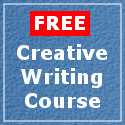 Hello everyone, welcome to the first session of our free online creative writing course. Over the next eight sessions we will be looking at different aspects of creative writing and trying our hand at various forms. I’d strongly encourage you to have a go at the exercises along the way, and please feel free to leave comments or ask questions at the end. If you have arrived on this page without first reading the home page and frequently asked questions page (on tab above) please go back and do so now. If you have read them, enjoy the course!
Hello everyone, welcome to the first session of our free online creative writing course. Over the next eight sessions we will be looking at different aspects of creative writing and trying our hand at various forms. I’d strongly encourage you to have a go at the exercises along the way, and please feel free to leave comments or ask questions at the end. If you have arrived on this page without first reading the home page and frequently asked questions page (on tab above) please go back and do so now. If you have read them, enjoy the course!
Creativity and Art
What is creativity? The Collins dictionary defines it as ‘the ability to cause something to exist’. Without getting into too much of an existential discussion, I would say that with every thought that is expressed, something has been created. It was Descartes who said: ‘I think, therefore I am’; well I would add, ‘I think, therefore I create’ (do you feel a God complex coming on?). But how do we express our thoughts? Sometimes we do it verbally, other times by body language and still again through what is loosely termed ‘art’.
Art takes place when a thought is expressed and fixed in a way that other people may experience it on an aesthetic level – through music, writing, painting, sculpture, choreography and so on. Many artists say that their best work takes place when they ‘by-pass’ the thought and simply express the feeling. This may be true, but for writers, who use a verbal medium, a feeling must first be converted into a thought before it can be put into words. Don’t over analyse the thought before you express it, as this way you can ‘channel’ the purest interpretation of the feeling, but some cognitive process needs to take place. Some writers prefer to mull over a thought and give it form before they put pen to paper – I’m one of them – but it’s good practice to try and switch off the ‘editor’ at least for the first draft. First response trigger exercises are useful in this regard and can release some unexpected words and images.
Exercise 1:
Write down your first response to these words or phrases:
- Blue ball
- And that’s when the sadness came
- Coffee
The first task of a good writer is to convert feelings into thoughts and then into words. This is the raw material that can then be converted into something more permanent. Some writers refuse to toy with their first drafts, believing their creativity will be diluted; I disagree. Allowing your critical mind to improve a piece of writing is where the craftsman meets the artist. Something produced only by the former will lack soul and something by the latter will lack form. Good writing is a combination of art and craft.
For public consumption
Art, of course, is highly subjective and one woman’s masterpiece is another woman’s unmade bed. We all have the ability to create, but whether or not our creation is ‘art’ must be left to the eye or ear of the beholder.
In this session we will look at how you can craft those creative thoughts into creative writing to share with other people. And that’s what sets ‘public’ writing apart from ‘private’ scribblings – there’s a perceived readership in mind. When I ramble on in my journal, I am the only one who will read it (hopefully!) so my only concern is getting my thoughts down on paper. The moment I want someone else to read it I begin to consider ways to improve the presentation and craft it into something more aesthetically pleasing. I consider which words may sound more colourful, whether or not my sentence structure is grammatically correct, whether I’m using evocative imagery, and so on.
Story, feeling or image?
What is it about those creative thoughts that you think might be of interest to other people? Do they speak of an eternal truth or a common experience? Do they make you laugh or cry? Do they suggest a story that will entertain or a poem that captures a moment that must be shared?
Exercise 2: In 50 words or less write down why you want to write then list three creative thoughts that you’ve had lately (each 10 words or less). These may be an image, a musing, a ‘truth’, a story, or so on. If you haven’t had any, take yourself for a walk and look around; what grabs your imagination? Browse through a newspaper or a magazine; do any stories or pictures catch your attention? Think back over your day; did anything funny, charming, shocking or unusual happen to you or someone you know?
Poetry or prose?
Some people are more suited to writing poetry than prose and some people do well at both. Although we won’t be discussing it in this course, other people are more suited to script. I’m one of them. I’ve had relative success as a prose writer and in fact have managed to earn a living from it, but it’s taken years of hard work to get to this point. I recently branched out into scriptwriting and found that I had much more of a natural ability. (If you’re interested in finding out more about scriptwriting, check out getting started in playwrighting). You may find that you’ve been trying to make it as a poet when actually you’re more suited to prose. Now I don’t want to pigeonhole anyone, but ask yourself the following questions:
- Are you more attracted to films than stills?
- Do you enjoy telling people ‘stories’ from your life?
- Do you prefer to read stories or poems?
If yes, to these, then you may be more suited to prose than poetry. If no, then the opposite may be true. If it’s ‘sometimes yes, sometimes no’ then perhaps you are suited to both. We shall be looking at how to write poems in more detail in session 7, but suffice to say, a poem is like a snapshot of a moment. If you can’t rest until you know what happened before and after, then prose may be your genre.
Exercise 3: Take one of the three creative thoughts you wrote down in Exercise 2, then list 20 separate words that communicate or describe that thought. Do not, at this stage, link the words into sentences. Once you have your 20 words use them in a poem of 16 lines or less. Then, take the same 20 words and work them into a short story of under 300 words. Which exercise came more easily? Which form has best communicated your creative thought?
Further Resources:
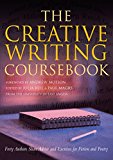
There are some excellent resources out there for creative writers. To get quick ‘starter’ images when your own well is dry I recommend The Writer’s Block by Jason Rekulak. I’m currently working through The Creative Writing Coursebook by Julia Bell and Paul Magrs and finding it very useful.
The next creative writing course session is how to write a short story. But before you move on to that, please feel free to leave a comment or ask a question in the box below.
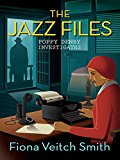
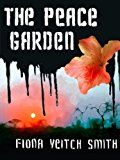
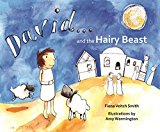
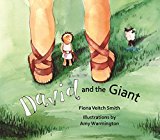
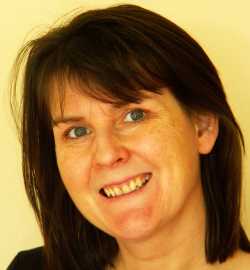 Welcome to The Crafty Writer's free online creative writing course, presented by Fiona Veitch Smith, a freelance journalist, editor, author, playwright, screenwriter and writing teacher. I hope that you'll see a dramatic improvement in the quality of your writing as you work through this course.
Welcome to The Crafty Writer's free online creative writing course, presented by Fiona Veitch Smith, a freelance journalist, editor, author, playwright, screenwriter and writing teacher. I hope that you'll see a dramatic improvement in the quality of your writing as you work through this course.
i want to learn the nuances of journalism & creative writing.
hope this propels me forward.
thanks for the introduction to the course.
Hi Brains, my non-fiction writing course will help you with journalism http://non-fiction-writing-course.thecraftywriter.com/ It’s also free. Happy writing!
Thank you for this writing course.
this is the most wonderful free course that I’ve done. I plan on doing mored of them.Bravo!!
This is so helpful to me. Though I hope there would be a through-mail sessions for those who can’t afford to stay on the net for a long time.
Hi Erich, as no one is paying me to put this course up then having it freely available online is the best I could do.
So far, so good. I will keep writing.
Hi!
I am trying to find a focus to my writing and so far, I can’t tell if I have any flair for poems but your advice is golden. Thank you. I feel more at easy with my own work and I definitely identify with what you said about craft and art.
Li
this is my thoughts on writing hope you will enjoy my visions///Elaine
Step into my mind, to what lays in store for all of you that dares to enter,
or dares to dream! Where things never feels as it should. Subsequently, you could say, where forces work beyond your comprehension. You’ll begin to believe as you enter into my dream-like atmosphere; where shadows become reality and reality becomes a fantasy.
Or better yet at times, you won’t even know the difference! Yet, when you breach the portal between the inner and outer world of reality that makes up life, as we know it. You’ll find a fascinating place that has lured mankind since the dawn of time, an expansion of one’s inner soul.
For most, they have always believed that dreams were sent to us by external Gods, but in fact, were brought about by wandering souls. Through a shift in the dimensional plain that enables the dreamer to see beyond his or her capabilities.
I was one of many, who tapped into that realm, which brought me to a higher capability of thought. You too can enter that world where dreams meet reality.
We are using this course for a semester for my daughter senior year English course. It looks great. Thanks for posting for free!
Mary
That’s great Mary. Good luck to your daughter.
So thrilled to see this course. I live in Bali and could not find anything here as I write in English only. Ready to go…when can I start?
If you read the information on the home page Rhoda you will see that you can start whenever you like. Happy writing.
Thank you for making me realise why I really want to write. And compounding my realisation that poetry is definitely not my genre…
Glad to be of service, m’dear
Hi,
I read the whole page and did the exercises. I find them very useful as i did not know about myself that… i took such less time to think and write.
And I would like to ask one thing that how important is it to have complete grammar knowledge to write creatively? This i am asking because my English grammar is not very great but i am interested in writing. And how can i improve on my grammar?
Awaiting for your response.
Thanks,
Neetu.
Hello Neetu, it is not important if you simply want to write for pleasure, but if you hope one day to be published in English or to enter competitions it is very important. There is a free online English grammar course you can take http://www.english-online.org.uk/ (I do not run this course so cannot answer any questions about it).
Hello thank you for allowing me to take the class.
I got a little stuck on what was a creative thought.
I think I did it correctly.
Thank you
Hi Frances, there is no right or wrong here. A creative thought is simply something that inspires you creatively. Happy writing! (and creative thinking).
Thank you for putting my foot on the first rung of the ladder
Wendy
You’re welcome Wendy. Happy climbing.
I am a beginner- Am I being Daft, thinking that my poem has to rhyme?
Hello Pat, your poem does not have to rhyme – but it can if you want it to. For a further discussion of poetry that doesn’t necessarily rhyme, see my post on ‘how free is free verse’ on the Crafty Writer blog. http://www.thecraftywriter.com/2008/04/29/how-free-is-free-verse/
This is a very useful course for those who need to learn on their own taking their own time. No dead line or time berries.Thus the creativity emerges spontaneously.
I felt that I needed a boost to get into Creative Writing and bumping into this page is a real blessing.
Thanks a lot.
You’re welcome, Morrie.
great so far
You are doing a great work !
I’ve just finished the first three exercises. I have not taken a course in over 20 years and it was exciting to see how quickly the time went as I completed this first session. I surprised myself with the ability to write a poem as that is not something that been easy for me in the past. I liked that this session made me explore poetry as a possibility but I also discovered that prose is still best suited to me.
Thank you for this helpful & interesting lesson.